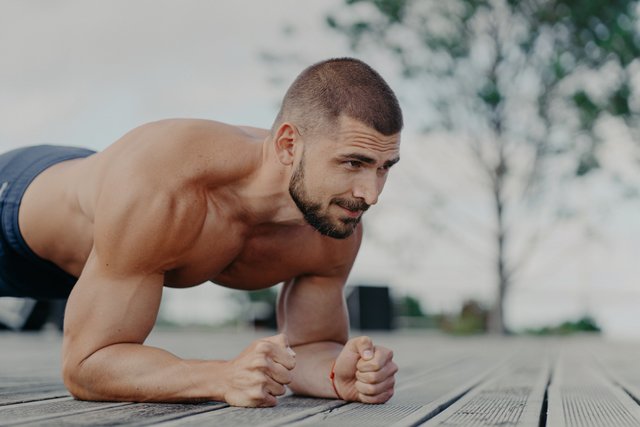How to Hydrate (The RIGHT way) and the Science Behind Rehydration Supplements Like PowerAde and Gatorade
Exercise and Hydration
During intensive exercise sessions, excessive sweat loss may lead to electrolyte loss and electrolyte imbalance (Maughan & Murray, 2000). Electrolytes play a key role in the regulation of water content and distribution throughout the human body. In order to avoid an electrolyte imbalance, it may be necessary for individuals who are engaging in high-intensity exercise to increase their intake of key electrolytes such as sodium, potassium, calcium and magnesium, which are found in sports drinks like PowerAde (Maughan & Murray, 2000). According to the research substantiated by Rau (2015), electrolytes are important as they aid in maintaining the osmotic gradients within cells by regulating the flow of fluids into and out of cells in order to prevent dehydration. Further research by Foskett, Williams, Boobis, & Tsintzas, (2008) demonstrates how glucose based carbohydrate solution, similar to the carbohydrate solution in PowerAde, impacts exercise capacity and endurance. Results of that study suggest that the consumption of a 6.4% carbohydrate solution enhances endurance capacity (Foskett et al. 2008). These results were further substantiated by Nicholas, Williams, Lakomy, Phillips, & Nowitz, (1995) who found that the ingestion of a carbohydrate-electrolyte solution improves athlete’s endurance during prolonged intermittent exercise.

What is PowerAde (A Rehydration Supplement)
- PowerAde is a popular sports drink manufactured by The Coca Cola Company and is widely used to replenish electrolytes and prevent dehydration (Galaz, 2013).
- PowerAde claims that their advanced ION4 Electrolyte System will “replenish four electrolytes lost in sweat” (Powerade keeps you hydrated, n.d.).
- This system also claims to provides consumers with vitamins B3, B6, B12 and a 6% carbohydrate solution to “supply energy to working muscles” (Powerade keeps you hydrated, n.d.).
There is a vast amount of peer-reviewed scientific research that can be used to back up the claims made by PowerAde; however, there is also ample research suggesting that there are more effective and healthier methods of rehydration and electrolyte replenishment after exercise.
While PowerAde can provide consumers with some notable benefits, we also must consider the ways in which PowerAde may harm a consumer. A 600mL bottle of PowerAde significantly lacks nutritional value and contains 34g of sucrose, 0g of protein, and 0g of fibre (PowerAde keeps you hydrated, n.d.). This is troubling as research by Brown (2008) suggests that frequent consumption of refined sugars, like sucrose, may cause or worsen pre-existing metabolic and cardiovascular impairment. While it is unclear as to whether or not there is a direct link between weight gain and the consumption of sugar-sweetened beverages (Malik, Schulze, & Hu, 2006), there is growing concern within our global community that the increasing popularity of sports drinks, like PowerAde, may be contributing to the global obesity epidemic (Cohen, 2012).

Are Sports Rehydration Supplements Right For You?
Although scientific research is able to corroborate PowerAde’s claims, this sports beverage is being marketed to look like it benefits individuals from all demographics, when in actuality PowerAde only benefits individuals who are at risk of electrolyte imbalance or dehydration. Based upon the current scientific research I would only recommend this nutrition supplement be consumed by healthy individuals who are engaging in high-intensity exercise and are at risk of dehydration. It is my belief that PowerAde should be consumed in moderation by individuals who do not suffer from cardiovascular or metabolic impairments, after engaging in intensive exercise that has caused excessive perspiration. It is important for consumers to be aware that the electrolytes found within PowerAde are also found in a multitude of other whole food sources (Sharp, 2007). For instance, athletes could rehydrate by drinking water, replace potassium by consuming a banana, and ingest sodium by eating lightly salted almonds after an intensive workout. By consuming whole foods and water, rather than highly processed sports rehydration drinks, individuals will be eating foods that are nutrient-dense and contain a variety of essential and non-essential nutrients.

All sources used within this post are reputable as they have been published in scientific peer-reviewed journals and are written in an unbiased manner. All sources have also been published recently and, therefore, are fully representative of current scientific understanding.
References:
Brown, C. M., Dulloo, A. G., & Montani, J. P. (2008). Sugary drinks in the pathogenesis of obesity and cardiovascular diseases. International Journal of Obesity, 32, S28-S34.
Cohen, D. (2012). The truth about sports drinks. BMJ, 345(e4737), 1-10.
Foskett, A., Williams, C., Boobis, L., & Tsintzas, K. (2008). Carbohydrate availability and muscle energy metabolism during intermittent running.Medicine and science in sports and exercise, 40(1), 96-103.
Galaz, G. A. (2013). An Overview on the history of sports nutrition beverages.Nutrition and Enhanced Sports Performance: Muscle Building, Endurance, and Strength, 205.
Malik, V. S., Schulze, M. B., & Hu, F. B. (2006). Intake of sugar-sweetened beverages and weight gain: a systematic review. The American journal of clinical nutrition, 84(2), 274-288.
Maughan, R. J., & Murray, R. (Eds.). (2000). Sports drinks: basic science and practical aspects. Crc Press.
Nicholas, C. W., Williams, C., Lakomy, H. K., Phillips, G., & Nowitz, A. (1995). Influence of ingesting a carbohydrate‐electrolyte solution on endurance capacity during intermittent, high‐intensity shuttle running. Journal of Sports Sciences, 13(4), 283-290.
Powerade keeps you hydrated. (n.d.). Retrieved June 05, 2016, from http://www.us.powerade.com/
Rau, A. H. (2015). U.S. Patent No. 8,956,652. Washington, DC: U.S. Patent and Trademark Office.
Sharp, R. L. (2007). Role of whole foods in promoting hydration after exercise in humans. Journal of the American College of Nutrition, 26(sup5), 592S-596S.
I got to rest after that long read. Very good @itsneptune